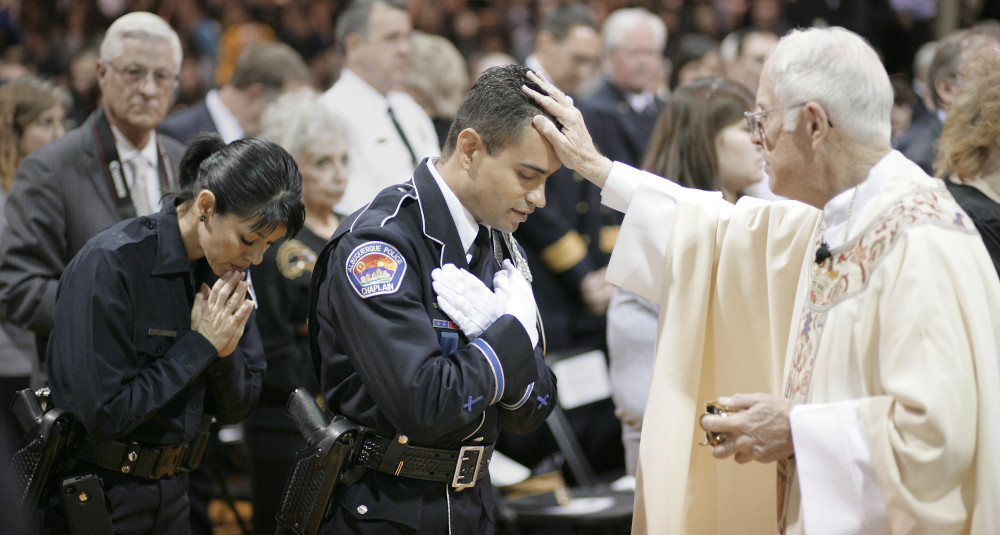Is everyone aware that some people feel rejected by the Church? It’s usually over issues of morality. Because this is important and can be very painful for people let’s deal with it. I really want to do this as lovingly as I can, being faithful to Jesus and as kind as possible. I pray no one gets hurt by this, even though it might be painful. I tried to come up with some jokes to lighten the talk… but couldn’t think of any good ones. Sorry.
 Let’s take divorce and remarriage because it’s a common topic in the media. The situation goes like this: a Catholic gets married in the Church, but unfortunately gets divorced, then remarries civilly (because they couldn’t get married again in the Church until the first marriage is over). Unfortunately, Jesus teaches this is a sin: “Whoever divorces his wife and marries another, commits adultery against her” (Mk 10:11). Now that’s very clear. It’s always been Christian teaching that we don’t believe in divorce because marriage is for life (we remember the wedding vows: ’til death do us part’), and human marriage represents God’s marriage to us, and He will never divorce us—that’s what’s at stake here. Because adultery is against the sixth commandment, the person can’t receive Holy Communion during Mass.
Let’s take divorce and remarriage because it’s a common topic in the media. The situation goes like this: a Catholic gets married in the Church, but unfortunately gets divorced, then remarries civilly (because they couldn’t get married again in the Church until the first marriage is over). Unfortunately, Jesus teaches this is a sin: “Whoever divorces his wife and marries another, commits adultery against her” (Mk 10:11). Now that’s very clear. It’s always been Christian teaching that we don’t believe in divorce because marriage is for life (we remember the wedding vows: ’til death do us part’), and human marriage represents God’s marriage to us, and He will never divorce us—that’s what’s at stake here. Because adultery is against the sixth commandment, the person can’t receive Holy Communion during Mass.
This is very difficult for some to accept. The key word for many people is ‘rejection,’ they feel rejected. And my heart goes out to them.
Now let me say I have a number of friends who are in this position, good people who are involved in the life of their parish, even go to Mass every day(!), but don’t take Communion. I admire and respect the fact that they recognize they shouldn’t take Communion and so don’t—that’s amazing. Compare that to us, because sometimes some of us shouldn’t take Communion but still do.
I also know many cases where I was able to help people fix their situation. After an investigation, we learned that their first marriage wasn’t valid, or their first marriage wasn’t in the Church, so they were free to marry a second time or have their current civil marriage blessed in the Church. In other cases, they separated from the second ‘marriage’ and so the problem was solved.
Because of the rejection some people feel, they argue, “Jesus never rejected anyone.” I’ve heard that so often and wondered, “Is that true?” Because, for example, Jesus was really hard on the Pharisees.
Today’s first reading and Gospel really got me thinking about this. The first reading is comforting, encouraging, full of God’s compassion, but then there’s that line, “But the fat [sheep] and the strong I will destroy.” That sounds like rejecting. Do you know what this passage is referring to? God is just and punishes those sheep who took advantage of the weaker sheep.
The Gospel follows this same idea and shows Jesus doing some pretty big rejecting. Those who don’t feed the hungry and give them drink, who don’t welcome the stranger, clothe the naked, do not visit the sick and imprisoned go to hell. At face value, Jesus is rejecting those who act that way (and it could be us!): “When the Son of Man comes in his glory… he will separate sheep from the goats…. He will say to those at his left hand, ‘You that are accursed, depart from me into the eternal fire prepared for the devil and his angels.’”
Jesus is more strict than we think. Why? St. John says, “If any one has the world’s goods and sees his brother in need, yet closes his heart against him, how does God’s love abide in him?” (1 Jn 3:17).
Lots of times in the Bible, Jesus seems to reject people. He calls St. Peter ‘Satan’ (Mk 8:33). He tells the parable about the man who didn’t use his talent and so is thrown into the outer darkness (Mt 25:24-30). Then there’s the parable about the wedding banquet in which one of the guests doesn’t have a wedding garment. He’s ‘rejected,’ you might say, because he had faith but no love (Mt 22:11-14)(we talked about this on Oct. 12/14).
How do we understand this with our merciful God who loves us, wants to forgive every sin, and died for all of us? The answer is that when we disobey God and don’t follow His commandments, we reject Him.
The best way to understand this is from Jesus’ own lips: “If any one hears my sayings and does not keep them, I do not judge him; for I did not come to judge the world but to save the world” (Jn 12:47). That’s the first important point. He doesn’t condemn us because He came to save us. But in the very next sentence, He says, “He who rejects me and does not receive my sayings has a judge; the word that I have spoken will be his judge on the last day” (Jn 12:48). When, for example, we ignore the poor, the lonely, the marginalized, we reject Jesus and His teaching, and that teaching judges us. I’m not saying we do this intentionally, but this is what our actions are saying.
To the woman caught in adultery, Jesus forgives her and doesn’t condemn, but He does tell her to change her behaviour. He never said her adultery was okay. He actually implied it was bad when He said, “Go and sin no more.”
A husband and wife years ago told me about their son who was addicted to drugs and wasn’t allowed to live at home anymore. He had been using drugs for many years and they had done everything to help him because they loved him. He had moved back in a number of times but always stole their money and took advantage of them. After repeated efforts, it was heartbreaking for them to say he couldn’t live at home anymore. The question is: did they reject him? No, he rejected them by his actions. Even though they gave him so many chances, he freely chose to reject their love.
Ever work with someone who doesn’t do their job? For example, is arrogant, intimidating to other employees, gossips, rolls their eyes at everyone’s suggestions, complains that nothing is good at work? Or every work with the person who never participates, has their laptop open doing busy-work while at meetings, shows no interest, makes excuses about not doing their work, shows up late consistently, leaves early? What would you do if you were the employer? You’d give them help, telling them what they need to improve. But if they keep on doing these bad things, they have to be warned, warned again, warned again, but after that, they’re the ones breaching the contract.
If we feel rejected by the Church, or someone we know feels rejected, please tell them that no one is rejected by the Church or Jesus. If someone has ever told you the truth in a mean way or unfairly done it, I’m really sorry. Priests should tell the truth gently. But it’s critical that we don’t just make up our own morality: saying that something is wrong but doesn’t apply to me. We have to be faithful to Jesus.
If you know anyone who’s struggling with feeling rejected or is divorced and remarried, I’d love to talk to them. All Catholics belong in the Church, should be involved in the life of the parish as much as possible, even though some may not be able to receive Communion. I love reminding people that they’re our brothers and sisters and we want them here!![]()
Let’s listen to those words of Jesus again, “If any one hears my sayings and does not keep them, I do not judge him; for I did not come to judge the world but to save the world. He who rejects me and does not receive my sayings has a judge; the word that I have spoken will be his judge on the last day” (Jn 12:48). Jesus rejects no one. But when we sin, we reject Him.